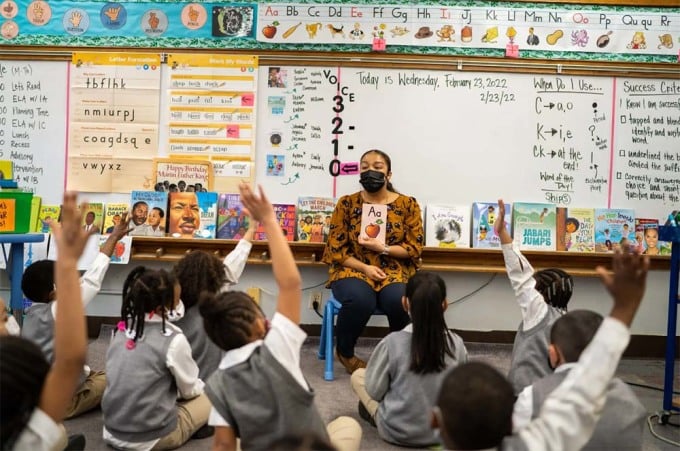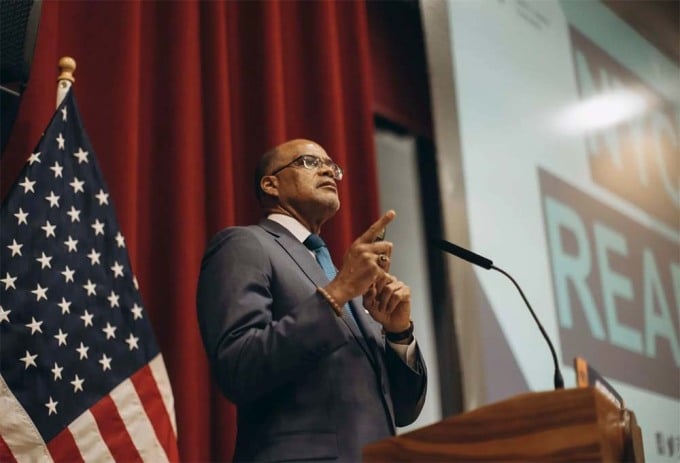More than half of students in grades 3 through 8 are not proficient readers, prompting New York City to require schools to change the way they teach next school year.
New York City Department of Education Superintendent David C. Banks announced earlier this week that the city’s 700 public schools will shift their approach to reading instruction from teaching children to use visual clues to guess words to phonics-based instruction.
The old way of teaching reading was considered unscientific and "flawed" by the head of New York's education department, causing schools to teach students to read incorrectly for the past two decades.
Banks said many places are facing similar problems. In Detroit, 91 percent of students at all levels are not proficient in reading, while in Chicago it is 80 percent. In New York, if you count black and Hispanic students separately, the reading proficiency rate is above 63 percent.
Mr. Banks said this has many consequences, citing evidence that 70% of adults arrested by police have reading abilities below a fourth-grade level.

The way reading is taught in New York City public schools over the past two decades has been criticized as flawed. Photo illustration: The New York Times
Over the next two years, the city’s 32 school districts, which have more than 700 schools, will adopt one of three reading curricula: Wit & Wisdom; Expeditionary Learning; and Into Reading. But they will all be taught the same way.
Half of the districts will start the new program in September, with the rest starting in 2024. However, about 20 schools were considered for exemptions because more than 85% of their students are proficient readers.
This is a major change from the previous school year when principals had full autonomy over how they taught. It is considered the most radical overhaul of reading instruction in New York City since the early 2000s.

Mr. David C. Banks, Director of the New York City Department of Education, USA. Photo: The New York Times
The New York City Department of Education's plan has the support of teachers' unions but is opposed by many principals. Henry Rubio, head of the principals' association, said it was "pedagogically unsound."
“We do not believe that adopting a single curriculum is the way to achieve the city's important goals,” Rubio said.
Some teachers worry that big changes often come with inadequate training.
But Mr Banks believes the changes will make things easier. Teacher training will begin in mid-May and continue through the summer so they can return to school fully prepared in the fall.
Dawn (According to New York Times, CBS News )
Source link




![[Photo] General Secretary To Lam attends the 80th anniversary of Vietnam's diplomacy](https://vstatic.vietnam.vn/vietnam/resource/IMAGE/2025/8/25/3dc715efdbf74937b6fe8072bac5cb30)










































































































Comment (0)